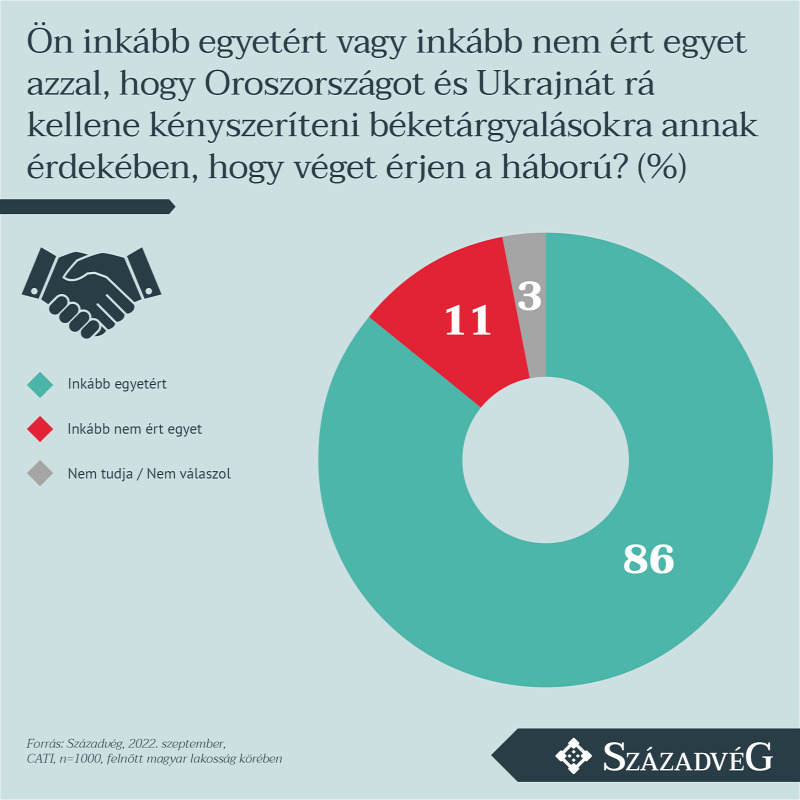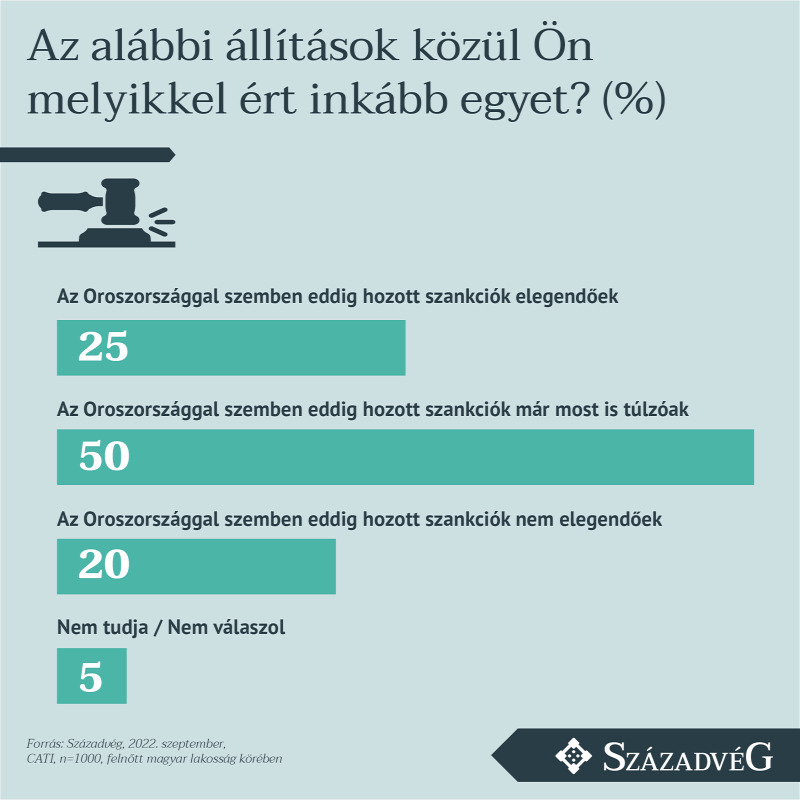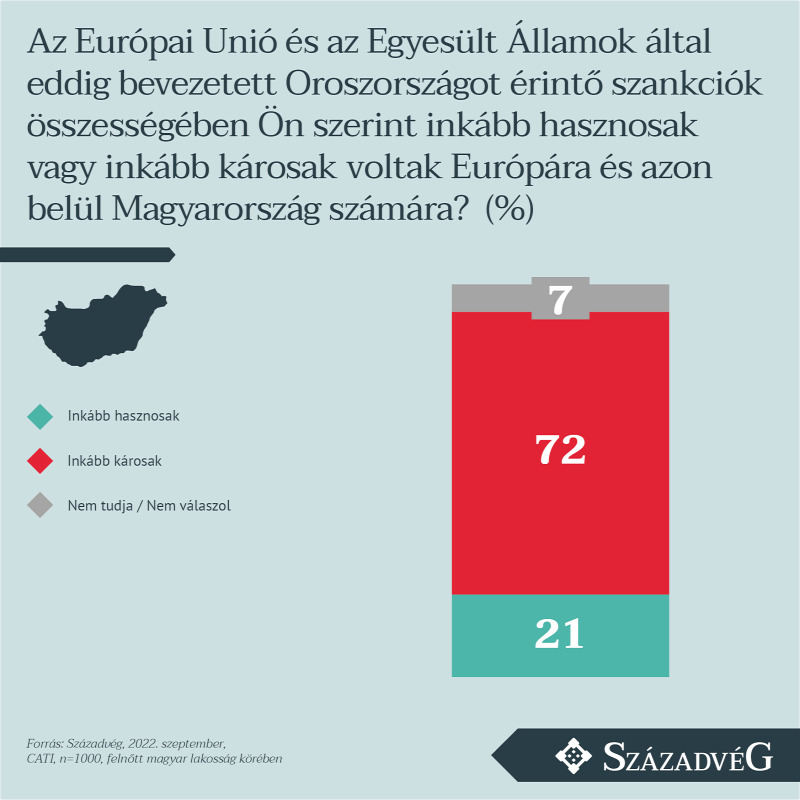By now it has become clear that Brussels' sanctions policy, which was aimed at curbing Russia's military efforts aimed at Ukraine, failed, and at the same time had a crippling effect on Europe's economy and energy security. The latest research by Századvég assessed what Hungarians think about the leading politicians involved in the Russian-Ukrainian conflict and the Brussels sanctions policy.
The Russian-Ukrainian war and Brussels' sanctions policy - as the September analysis of Századvég emphasizes - have led to an explosive increase in the price of energy carriers, energy shortages and wartime inflation across Europe in recent months. Although Europe's interests would dictate that the peace negotiations ending the armed conflict could start as soon as possible, the
BRUSSELS LEADERS ARE CONSIDERING INTRODUCING MORE PENALTIES.
In addition, it was suggested that the European Commission acquire extraordinary war management powers at the expense of the member states, which also suggests that Brussels plans to "set up" for war conditions in the long term instead of promoting peace. On the other hand, Századvég's research highlights that
MORE THAN A FIFTH OF HUNGARIANS (86 PERCENT) AGREE THAT RUSSIA AND UKRAINE SHOULD BE FORCED TO PARTICIPATE IN PEACE NEGOTIATIONS IN ORDER TO END THE WAR ASAP.

Source: End of the century
Since February, Brussels has adopted seven sanctions packages in order to put pressure on Russia, but the war conflict has not been contained, and Russian troops continue their battlefield operations in Ukraine. Despite this, the sanctions policy remains a constant factor on the European political agenda, in August the government of Estonia submitted an official proposal to the European Commission for the compilation of an eighth punitive package, which would, among other things, introduce a full-scale energy embargo and new restrictions on certain groups of goods.
According to the research, it shows concerns about the effectiveness of sanctions that
HALF OF THE HUNGARIANS (50 PERCENT) THINK THAT THE SANCTIONS IMPOSED AGAINST RUSSIA ARE ALREADY EXCESSIVE, WHILE A QUARTER OF THE RESPONDENTS (25 PERCENT) THINK THE MEASURES ALREADY INTRODUCED ARE SUFFICIENT, THERE IS NO NEED FOR FURTHER STEPS.

Source: End of the century
It is interesting that in May only 31 percent of the respondents considered the sanctions introduced until then to be excessive.
THE PROPORTION OF THOSE WHO CONTRIBUTE TO THE PUNISHMENT MEASURES TAKEN AGAINST RUSSIA IN THE PAST MONTHS IS ALL 20 PERCENT.

Source: End of the century
The negative consequences of the sanctions policy for Europe are also reflected in the opinions of the public, as 72 percent of those surveyed - for Europe and Hungary as a whole - consider the sanctions against Russia introduced by the European Union and the United States of America to be more harmful overall, while 21 percent rather considers the mentioned measures useful.
Source: Origin
Featured image: End of the century













